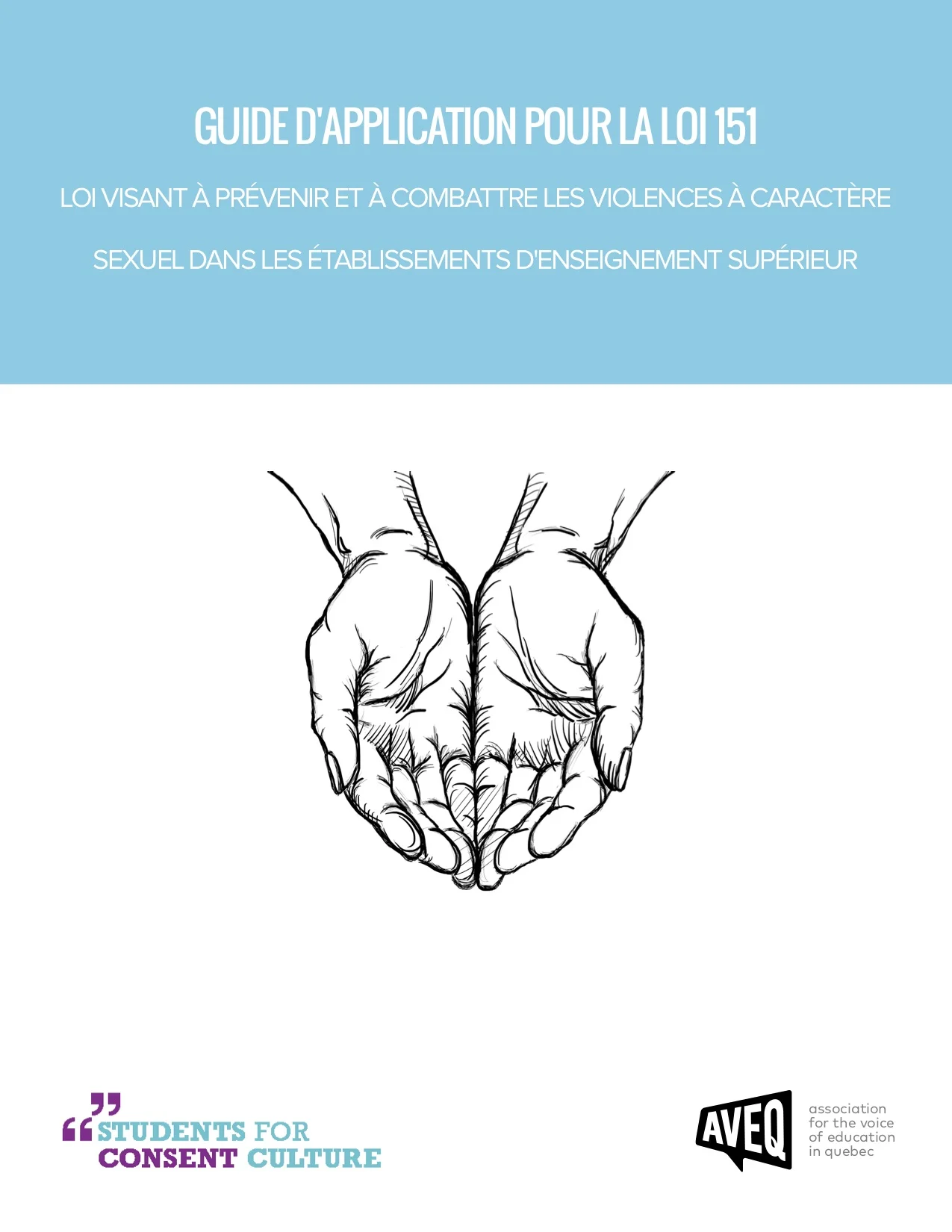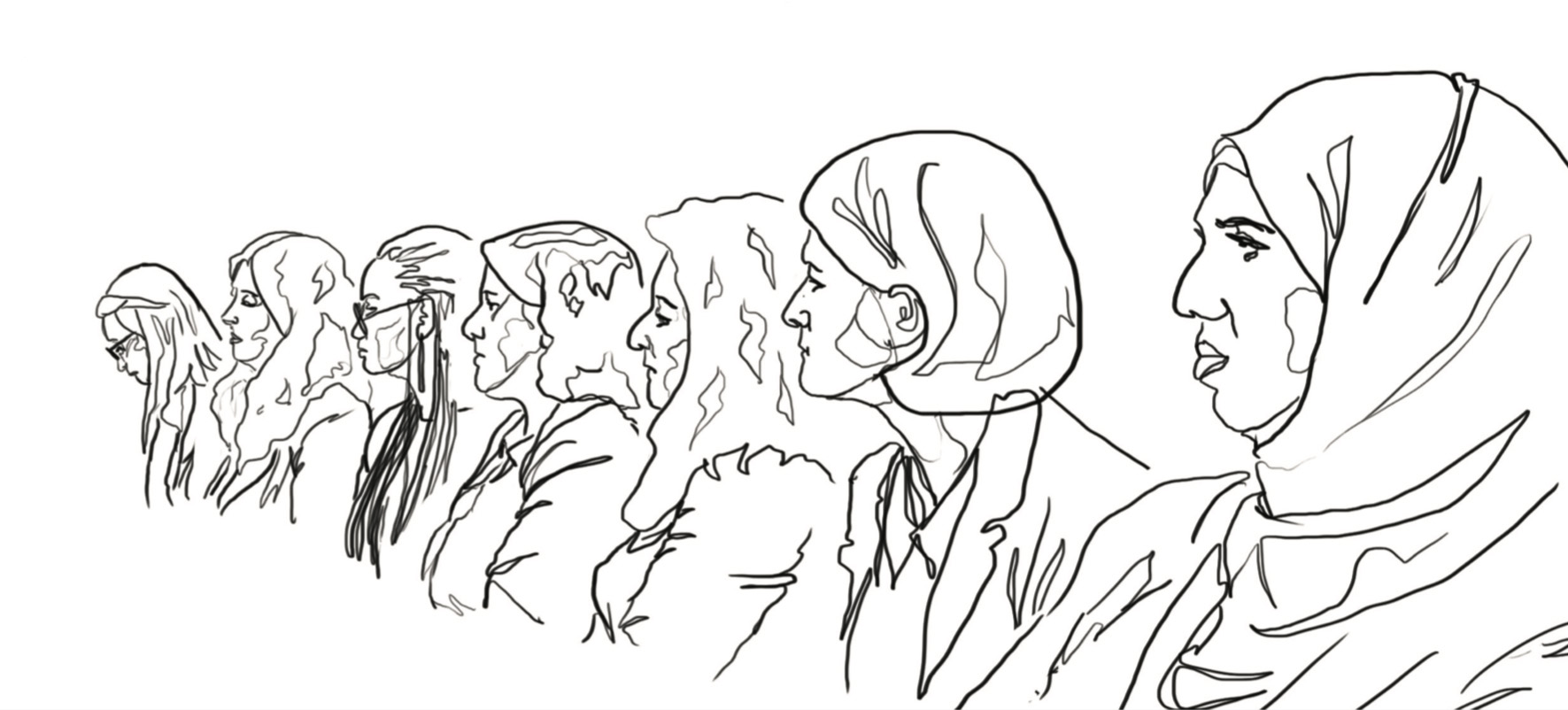Provincial Advocacy
Members of SFCC do advocacy work around campus sexual violence at the provincial level in each of our respective provinces. We have seen a pattern emerge as more and more provinces create provincial legislation – a pattern of provincial legislation not including adequate Minimum Standards and oversight mechanisms. The following outlines our overall recommendations for provincial campus sexual violence legislation, as well as our work at the provincial level across the country.
Overall Recommendations
Although provincial governments were well-intentioned in the creation of legislation mandating campus sexual violence policies, they did not understand the nuances of the issue to include meaningful clauses that would provide protections to survivors seeking to pursue complaints under these policies. For example, in passing campus sexual violence policy legislation provinces did not take into account the need to reform provincial privacy legislation. Thus, they have mandated institutions to create sexual violence processes whereby institutions are legally prohibited from informing survivors of the outcome of their cases (sanctions specifically). Furthermore, government continuously places too much faith in institutions and administrators doing the right thing and going above and beyond what is explicitly written in legislation. The legislation failed to provide adequate mechanisms for government to document and hold institutions accountable for violating the rights of survivors who seek institutional processes.
In response to these shortcomings, we have developed a set of minimum standards that we worked with partners across the country to advocate for at various provincial levels. In addition to the minimum standards we advocated for the creation of accountability processes and reforms to privacy legislation to support the well-being and rights of survivors.
Minimum Standards: We recommend the following 11 minimum standards for all university policies to have in order to fulfill provincial legislation be the following:
A Defined Stand-Alone Sexual Violence Policy: The existence of a stand-alone sexual violence policy that DOES NOT place the process through the Student Code of Conduct. The procedures must be stand-alone and must be clearly outlined in a step by step process for students, staff, and faculty;
Right to both Criminal and Institutional Processes: The ability to report experiences to both their institution and the police without risk of having a complaint suspended due to the other process;
Mandatory Sexual Violence Training for Decision-Makers: A mandate of sexual violence sensitivity training on trauma-informed approaches for those involved in hearing the sexual violence complaint and deciding the outcomes;
Rape Shield Protections: Explicit rape shield protections, whereby a complainant cannot be asked questions about their sexual history at any point of the informal or formal complaint process;
Protections from Face to Face Encounters: The inclusion of protections from face to face encounters, a complainant should not be required to be present at the same time as a respondent. Similar to the criminal justice system these interests between survivor protections and procedural fairness can be balanced through the use of a screen and/or video technology.
Timelines: Clearly defined and reasonable timelines for a complaint process that DO NOT exceed 45 days for a complaint process and 48 hours for immediate accommodations;
Protections from Gag Orders: Protections from institutions imposing a gag order on complainants through a broadly defined confidentiality requirement.
Broader Scope: Campus Sexual Violence Policies must explicitly create a procedure for students to report sexual violence and/or sexual harassment while participating in a work placement, internship or co-op and require that the university keep record of in which places sexual violence has occured to ensure that future students are not placed at risk of sexual violence while pursuing co-op opportunities.
Informing of Sanctions: A mandate that institutions must inform both the complainant and respondent of all sanctions ordered by the review committee.
Student Representation on Committees: A mandate for the creation of a Sexual Violence Prevention and Support taskforce, with meaningful student representation of at least 30%, at each institution.
Review Period of 2 Years: We recommend that institutions be required to review their policy every 2 years at most, with every year being ideal.
Oversight Mechanisms:
Provincial governments MUST create an independent oversight body to hear individual complaints from individuals at post-secondary institutions who believe their safety has been compromised and/or their rights have been violated by the institution. There must be an accessible process for individual students and survivors of campus sexual violence to file a complaint against their institution or inform the Minister that their rights under provincial legislation are being violated.
The lack of meaningful and accessible oversight mechanisms creates a situation whereby institutions, regardless of intention, may violate the rights and/or compromise the safety of survivors, with no sanctions from the province, or recourse available to the survivor. There must be a process in place, that is referenced in each campus sexual violence policy, for someone to file a complaint if their school violates this.
In addition to hearing individual complaints, the government should also seek to hear and respond to the input of student groups and individual student sexual violence survivors on each campus once the policies are created to ensure that institutions properly consulted students and that students feel that sexual violence is being properly handled at their institutions through prevention and support programs.
More Advocacy
Province-specific recommendations
British Columbia:
From 2019–2020, SFCC members and allies participated in Sexual Violence Training and Resources Working Group, a provincial community of practice that led to a number of resources for campuses in BC. The toolkit “Evaluating Sexual Violence Training and Resources” was developed by the working group to support administrators and student groups in assessing the relevance and quality of training they are inviting onto their campus or developing. This interactive workbook invites users to think deeply about the values, ethics, and ideologies they wish to engage in teaching campus communities about violence.
Link: “Evaluating Sexual Violence Training and Resources”
In October 2019 we presented the BC legislature with a call to action that put forward recommendations for creating safer campus communities.
When using Moving Beyond Potential, please cite the report as follows:
Spicer, Chantelle and Connor Spencer. ‘Moving Beyond Potential Building Justice for Students in British Columbia: A Call for Action on Campus Sexual Violence’. Students for Consent Culture Canada, 2019.
In January 2018 we were consulted by UBC AMS for their letter providing feedback on provincial legislation to The Ministry of Advanced Education, Skills and Training in BC, which resulted in an open letter.
Link: Open Letter to The British Columbia Ministry of Advanced Education, Skills and Training
Ontario:
In March 2018 we wrote an open letter to the Minister of Education in Ontario that was signed by 19 student groups.
Link: Open Letter to The Ontario Minister of Education
PEI:
In February 2018 we wrote an open letter to the premier of Prince Edward Island calling for the creation of provincial legislation that was signed by 23 student organizations and 213 individual students.
Link: Open Letter to the Government of Prince Edward Island
Québec:
In December 2017, we released an open letter to the Minister of Higher Education in Québec in response to the draft that was released of Bill 151 after being invited to testify at the National Assembly on projet de loi 151. It was signed by 20 student organizations and 327 students across Québec.
In April 2018 we wrote another open letter to the Minister of Higher Education in Québec calling for student representation on the committee tasked with creating the guide to accompany Bill 151 which was signed by student groups and included the support of members on the committee.
In 2017 the government of Québec passed Bill 151 mandating all campuses to create campus sexual violence policies. Unfortunately, although the legislation looked great politically, the weak and vague requirements did little to support activists at the grassroots level advocating at institutions such as Concordia, McGill, and UQO.
In response to our genuine disappointment with the Québec government, Students for Consent Culture and AVEQ teamed up to write a guideline to support student activists and survivors on campuses to advocate for survivor-centric policies as their institutions create them this year.
We are proud to share this resource with activists, survivors, and student unions in Québec! The guide includes legal requirements for institutions under Bill 151, survivors rights, and recommended best practices.
Link: Guide d’application pour la loi 151 / Bill 151 Policy Implementation Guide
If you need support over the next few months with on-campus mobilizing in Québec around these policies, please contact us at outreach@sfcccanada.org.
When using the Bill 151 Policy Implementation Guide, please cite the guide as follows:
Salvino, Caitlin, Connor Spencer and Kristen Perry. ‘Policy Implementation Guide to Bill 151: An Act to Prevent and Fight Sexual Violence in Higher Education Institutions’. Montreal, QC, 2018.
Lorsque vous utilisez le guide d'application pour la loi 151, veuillez le citer comme suit :
Salvino, Caitlin, Connor Spencer et Kristen Perry. ‘Guide d’Application Pour La Loi 151: Loi Visant à Prévenir et à Combattre Les Violences à Caractère Sexuel Dans Les Établissements Supérieur.’ Montréal, QC: Étudiants pour une Culture du Consentement, 2018.


